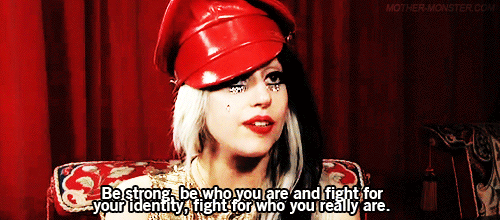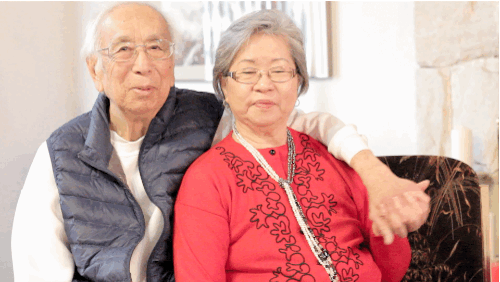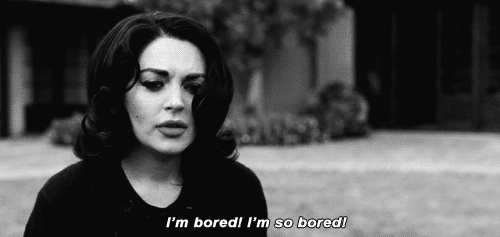For many of us who have stumbled into the humanities, waving goodbye to the books, coffee hours and conversations about Virginia Woolf’s closet sexuality after graduation seems like something out of a horror film. But never fear; if you want to continue your quest for knowledge (and for lumbersexuals in the lit department), you can. You can even get paid for it. You may be wondering, what is this mythical field of which I speak? Academia, of course.
Unfortunately, the magical world of dissertations and professors is also host to a woman’s arch nemesis: gender inequality. Studies have shown that women in academia still make less money than men and hold only 38 percent of full professorships (*cough cough* it’s 2015: Get it together, world). Although women have a harder time making it in the kingdom of bookworms, they can indeed succeed. Five professors from top-ranked institutions shared what they wish they had known when embarking upon the world of academia.
1. Ask for what you want.

“One year I was lucky enough to get two fellowships. I thought, ‘Oh dear, which one will I take?’ My friend suggested, ‘Well, why don’t you ask for both?’ And I thought, ‘Well, that’s impossible. Who could ever get two years to work on their research?’ But she suggested that I come back for one semester in between and that way, I wouldn’t lose contact with my graduate students, so I went forward with that. I was able to negotiate it. Also, men are getting outside offers and negotiating their salaries all the time. Women tend not to do that because they’re often involved with somebody who can’t budge. But I didn’t let that stop me, so I went ahead.” – Felicity Nussbaum, Distinguished Professor of English at UCLA
2. Persevere, young sprite!

“I really feel like failure is so important for people coming up through the ranks. My first book got turned down 13 times before it won a national award. I should have been on the floor, refusing ever to pick myself up, but I didn’t because I’m stubborn. People who end up in positions with authority almost always have had some failure along the way. You fall off the bike and you get back on. And other people’s judgments of you are as much about them as they are about you. Don’t take any particular person’s view of who you are and what you can do too seriously.” – Caroline Levine, Department Chair of UW-Madison’s English Department
3. Don’t be scared of a little word called “no.”

“Apply for absolutely everything. All they can say is no. So, why not ask? Why are you so afraid of a ‘no’? There are far worse things, and if you haven’t asked, you never know.” – Felicity Nussbaum, Distinguished Professor of English at UCLA
4. Seriously, stop being so scared of “no.”

“You have to be able to say no to things. Women are asked to do a lot of administrative roles because they know how to make a lot of moving parts work, and they understand that you have to consult, consult, consult in order to make change. It’s a question of being able to say, ‘No, I need time for my research this semester, I can’t do that.’ In a university, it’s tricky because you’re not rewarded for your leadership; you’re rewarded for your scholarship. Make sure you spend your time getting your book finished and getting it accepted to a major university press.” – Esther Schor, Professor of English at Princeton University
5. Post-pone having kids (if you can).

“There’s a tendency among my graduate students to feel that if they don’t have children right now, they’re not going to be able to have them. I know the clock does tick, but the earlier you can get started on your work, the better. A lot of people take a lot of time out now, and I just went straight on through and it made it possible to do what I did. Because you know, I wouldn’t trade anything about having children. But I waited, and I’m glad I did.” – Felicity Nussbaum, Distinguished Professor of English at UCLA
6. Find a supportive spouse.

“My husband was very helpful and bore a lot of the responsibility for our son. I think if it hadn’t been the case, either our son wouldn’t have turned out so well or it just wouldn’t have been possible. So I give him a lot of credit. Choosing a good marriage partner who thinks that what you’re doing is important is crucial.” – Florence Boos, Professor of English at the University of Iowa
7. Find community and allies, especially among other women.

“Talk with other women who may be feeling similarly or maybe having similar questions. Way back, consciousness-raising emerged as a strategy to express fears about going out into the world. It’s enormously helpful to find one is not alone in whatever fears one has. Conversation among women, and support groups, are really important.” – Elizabeth Abel, Professor of English at UC Berkeley
8. Don’t just network, Network smarter.

“It’s good to reach out to people who are doing something similar to what you want to do. At the most basic level, you can simply talk to others with similar goals about what they’re doing and ask questions. I write letters for students who are not at my university—you see, I’ve met them in other contexts. Older academics have to be replaced, and they feel a need to help younger scholars survive so that there will continue to be others doing the same thing.” – Florence Boos, Professor of English at the University of Iowa
9. Writing is important. Get better at it.

“Be a good writer, and look for models of good writing, rather than faddish scholarship. Everyone is interested in using the right buzzwords and the right critical frameworks, but I think what really endures is writing. It’s going to make people read your book 10, 20 years after it’s published.” – Esther Schor, Professor of English at Princeton University
10. Don’t let your perspective become the size of a pencil point.

“Prepare a second track. It could be through learning a language well or any other systematic endeavor, and understanding its relation to your field. A second interest adds depth to your initial field, but it also makes it easier in a very difficult, complicated world because you may end up having to switch fields, but still able to use your first real love.” – Florence Boos, Professor of English at the University of Iowa



















